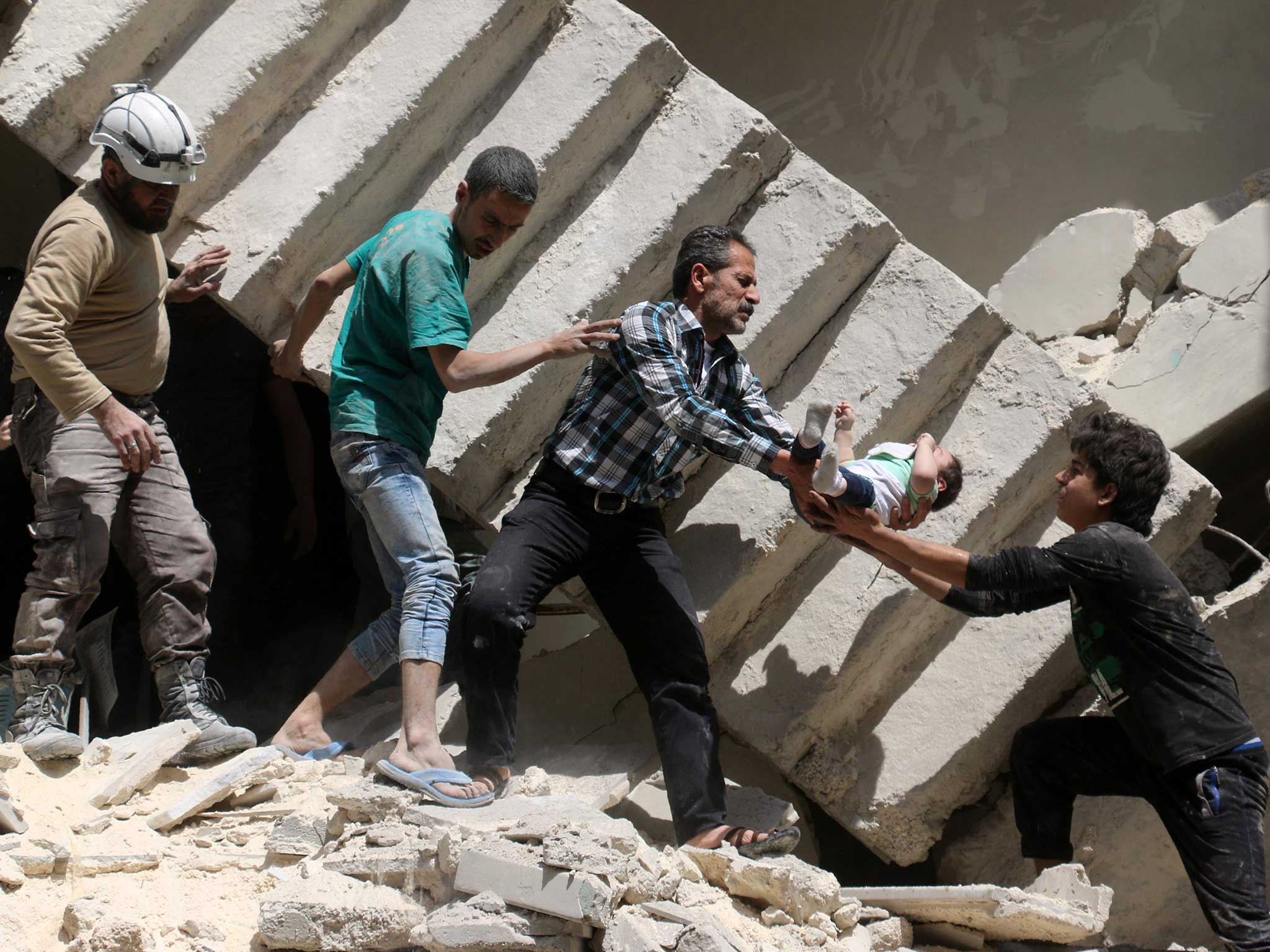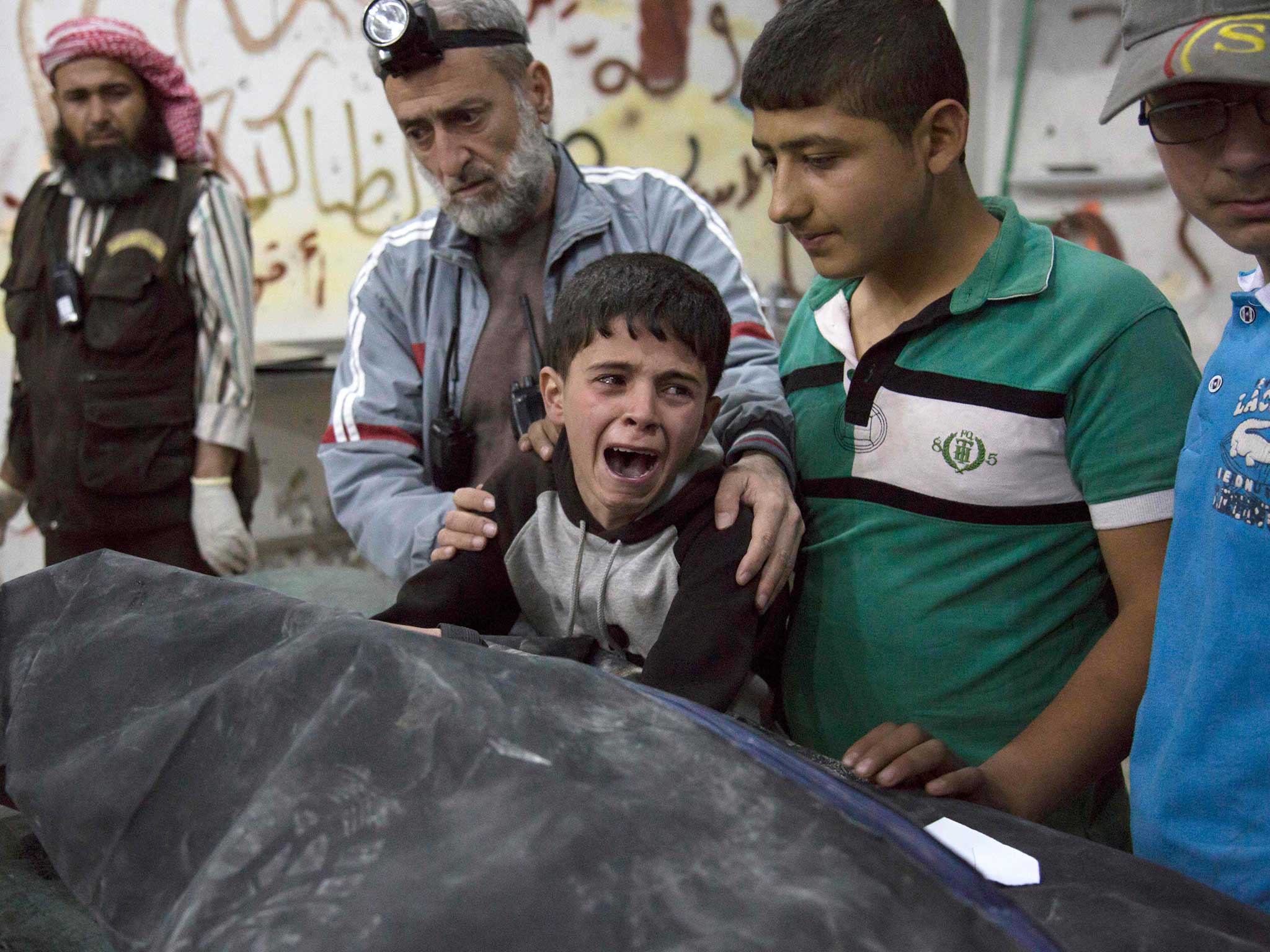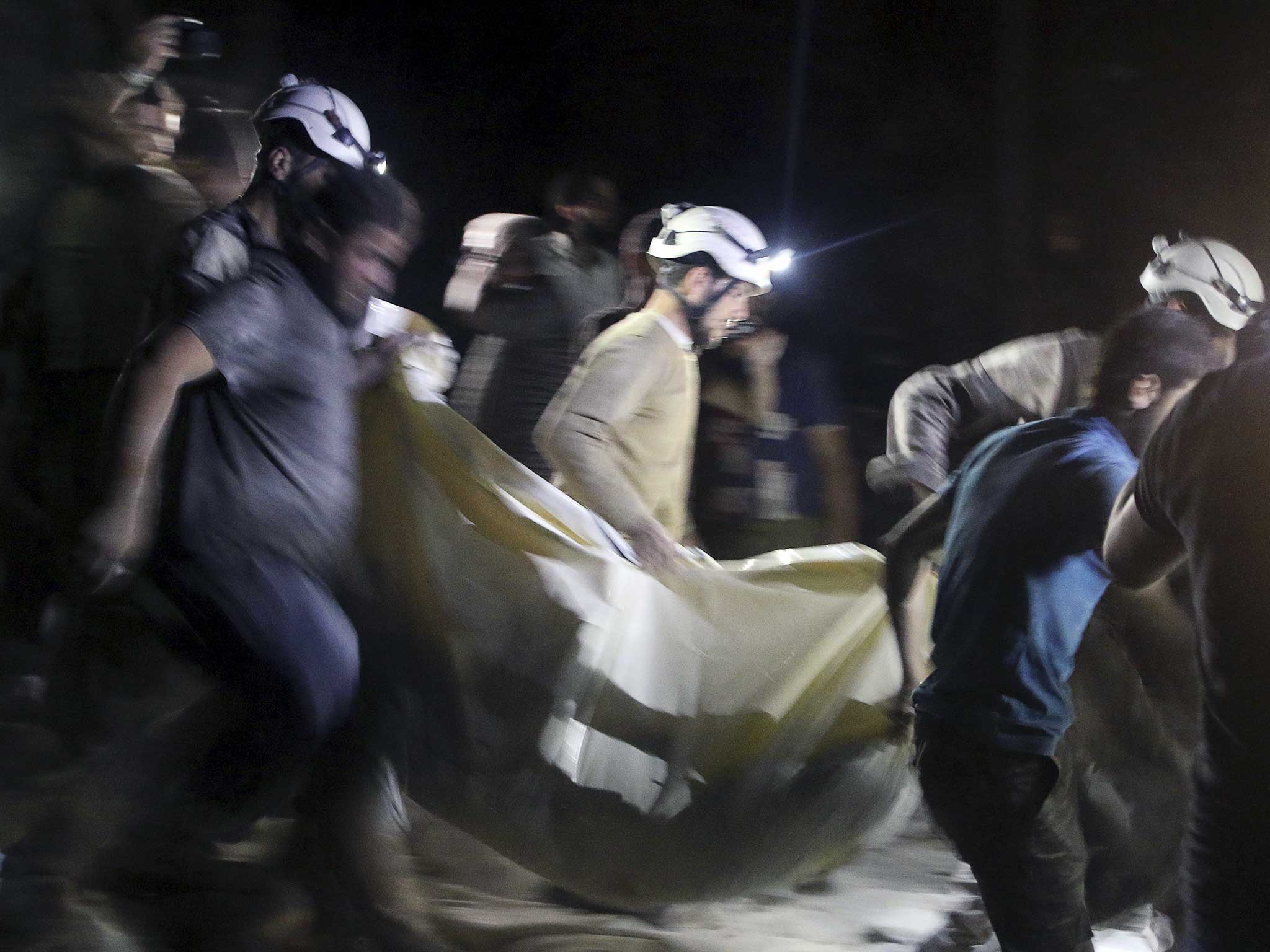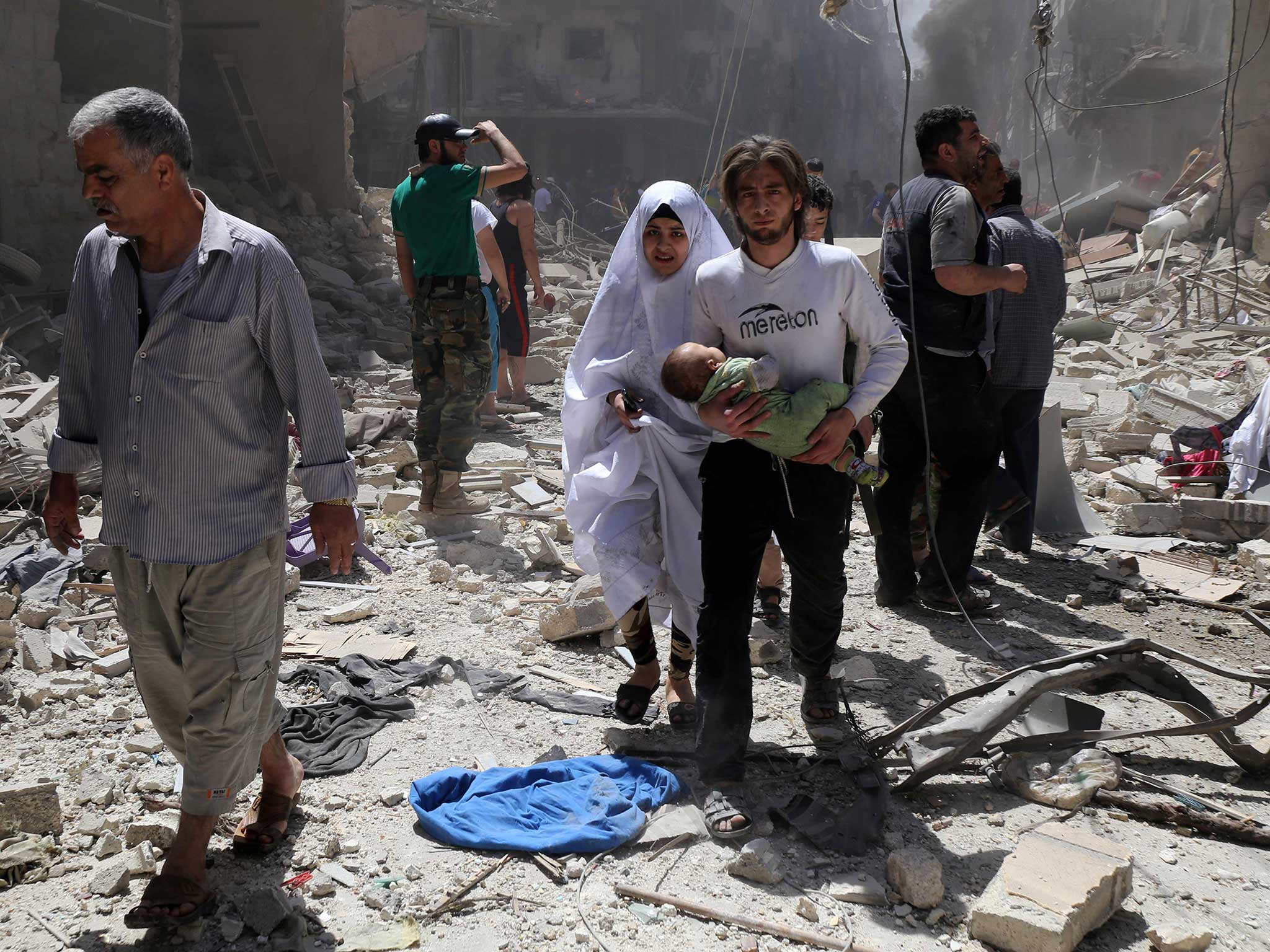Syria: Air strike on hospital in Aleppo kills at least 20 people including doctors and children
The dead include one of the few remaining paediatricians in the city's opposition-held areas

Your support helps us to tell the story
From reproductive rights to climate change to Big Tech, The Independent is on the ground when the story is developing. Whether it's investigating the financials of Elon Musk's pro-Trump PAC or producing our latest documentary, 'The A Word', which shines a light on the American women fighting for reproductive rights, we know how important it is to parse out the facts from the messaging.
At such a critical moment in US history, we need reporters on the ground. Your donation allows us to keep sending journalists to speak to both sides of the story.
The Independent is trusted by Americans across the entire political spectrum. And unlike many other quality news outlets, we choose not to lock Americans out of our reporting and analysis with paywalls. We believe quality journalism should be available to everyone, paid for by those who can afford it.
Your support makes all the difference.At least 20 people, including two doctors and three children, were killed when a series of air strikes hit a hospital and nearby buildings in the rebel-held part of Syria's contested city of Aleppo overnight.
The attack came as the UN envoy for Syria appealed to the US and Russia to help revive the Syrian peace talks and a ceasefire he said "hangs by a thread".
The chief Syrian opposition negotiator, Mohammed Alloush, blamed the government of President Bashar Assad for the deadly air strikes on Aleppo. He told the Associated Press that the latest violence by government forces shows "the environment is not conducive to any political action".

The strikes hit shortly before midnight on Wednesday, according to opposition activists and rescue workers. They struck a well-known field hospital in the rebel-held district of al-Sukkari in Aleppo. The dead include one of the few paediatricians remaining in the city's opposition-held areas and a dentist, activists said.
The head of the Britain-based Syrian Observatory for Human Rights said at least 20 people were killed, including three children, and that the hospital was completely destroyed. The group earlier said at least 27 people were killed in the attack.
The Syrian Civil Defence, a volunteer first-responders agency, whose members went to the scene of the attack, said the al-Quds hospital and adjacent buildings were struck in four consecutive air strikes.
The agency, also known as the White Helmets, gave a slightly higher toll, saying 22 were killed. It said there were still victims buried under the rubble and that rescue work was continuing.
Among those killed were three of the hospital's medical staff, they said.
Mr Alloush, who was one of the leading negotiators of the opposition in the Geneva talks, described the air strikes as one of the latest "war crimes" of Assad's government.

"Whoever carries out these massacres needs a war tribunal and a court of justice to be tried for his crimes. He does not need a negotiating table," he said.
"Now, the environment is not conducive for any political action."
The 27 February ceasefire has been fraying in the past weeks as casualty figures from violence mount, particularly in Aleppo and across northern Syria. Air strikes earlier this week also targeted a training centre for the Syrian Civil Defence, killing five of its team in rural Aleppo.
Since 19 April, nearly 200 people have died, including at least 44 in an air strike on a market place in rebel-held area in northern Idlib province, as well as dozens of civilians in government-held areas from rebel shelling.
The UN envoy for Syria, Staffan de Mistura, briefed the UN Security Council via video-conference about the largely stalled indirect talks between the Western- and Saudi-backed opposition and envoys from Assad's government, which has the backing of Moscow.

He said that, after 60 days, the cessation of hostilities agreed to by both sides "hangs by a thread".
"I really fear that the erosion of the cessation is unravelling the fragile consensus around a political solution, carefully built over the last year," he said in his council briefing obtained by the Associated Press.

"Now I see parties reverting to the language of a military solution or military option. We must ensure that they do not see that as a solution or an option."
The talks foundered last week after the main opposition group, the High Negotiating Committee, suspended its formal participation in the indirect talks with Assad's envoys to protest against alleged government ceasefire violations, a drop in humanitarian aid deliveries and no progress in winning the release of detainees in Syria.
It came as the International Committee of the Red Cross warned spoke out of the bombardment of Aleppo, saying it was putting millions of lives at risk.
“Wherever you are, you hear explosions of mortars, shelling and planes flying over,” said Valter Gros, who heads the ICRC’s office in the city.
“There is no neighbourhood of the city that hasn’t been hit. People are living on the edge. Everyone here fears for their lives and nobody knows what is coming next.”
Agencies
Join our commenting forum
Join thought-provoking conversations, follow other Independent readers and see their replies
Comments